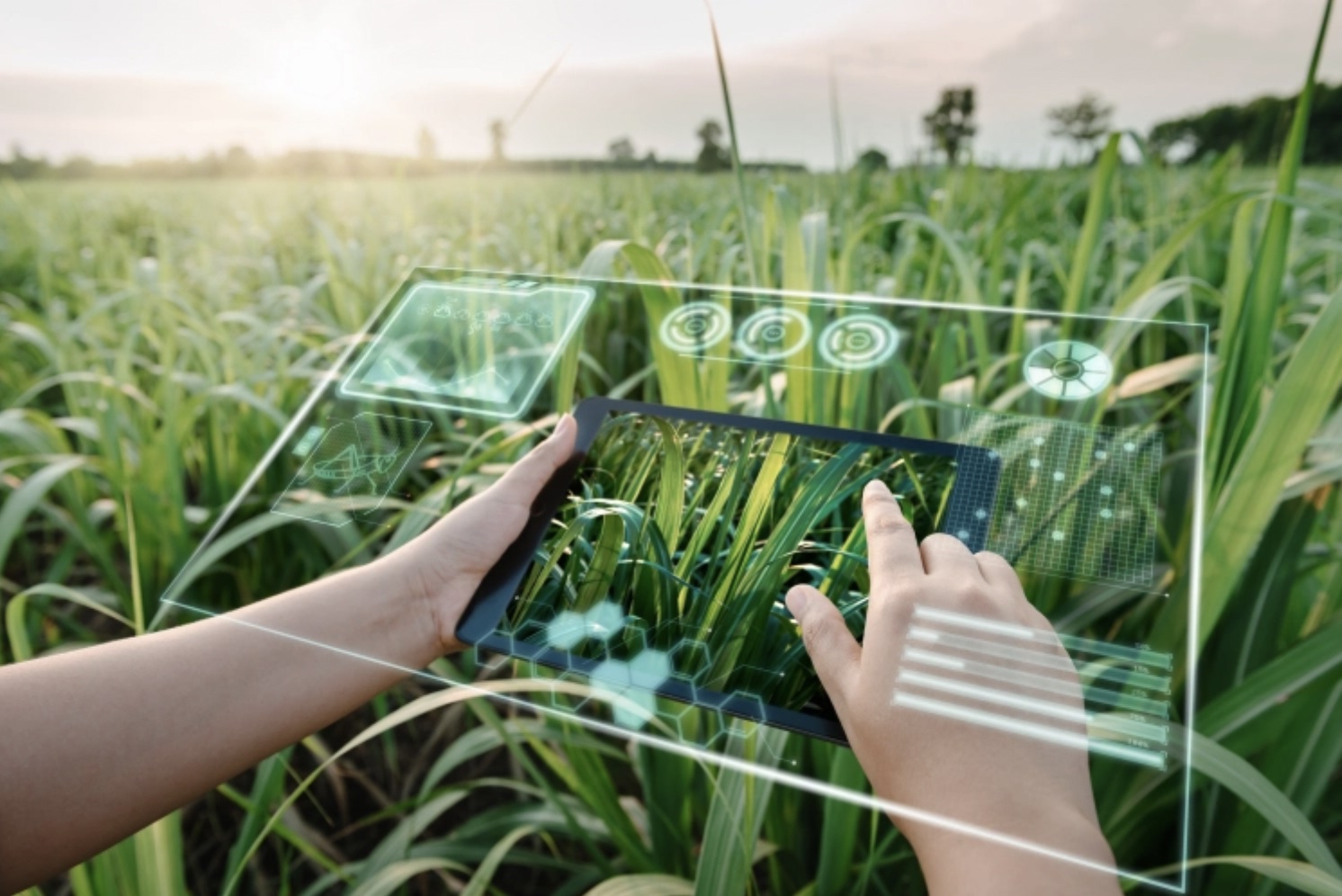AI Agents in Agribusiness
From soil to harvest, AI agents are the partners growing a smarter, more sustainable world.

Revolutionizing Agribusiness for a Sustainable Future.
One of the most significant applications of AI in agriculture is precision farming. By analyzing vast amounts of data from sensors, drones, and satellites, AI algorithms can provide farmers with real-time insights into the health of their crops, soil, and livestock. This data-driven approach allows for the precise application of resources like water, fertilizers, and pesticides, leading to increased crop yields while significantly reducing waste and environmental impact. For example, AI-powered irrigation systems can adjust water delivery based on real-time soil moisture levels, ensuring plants receive exactly what they need without over-saturating the field.
Beyond resource management, AI plays a crucial role in disease and pest detection. Computer vision models can analyze images of crops to identify early signs of disease or pest infestations, often long before a human can spot them. This early detection enables targeted interventions, preventing the spread of problems and minimizing the need for widespread chemical treatments. Similarly, in livestock farming, AI-powered systems can monitor animal behavior and health metrics to detect illnesses, stress, or other issues, allowing for timely veterinary care and improved animal welfare.
How It Works
A simple and transparent 4-step process.
Phase of identifying processes that can be automated. This involves analysis, mapping, bottleneck identification, and evaluation of the potential for improvement.
Design phase for the selected processes and technology choice. We build the solution through coding, configuration, and integration with other systems.
This phase is where the solution is rigorously tested to ensure the automated process works as expected, and system integrations are seamless.
Monitoring phase for the automated process, which involves data collection, identifying opportunities for improvement, and continuous optimization.
Our Innovative Solutions
Technology services based on the most innovative solutions for creating artificial intelligence solutions.
3D AI Avatars
3D AI Avatars – Merge the power of artificial intelligence with the lightness of a truly human presence. More than just technology, they combine the best of both worlds: all the experience of immersive computing plus the infinite flexibility of AI avatars. Transforms experiences that were once merely virtual into living journeys.
AI Agents
AI Agents – Are sophisticated software systems designed to operate autonomously to achieve specific goals. Unlike traditional AI tools, which are typically passive and perform a single, predefined task, agents can reason, plan, and take a series of actions to complete complex, multi-step tasks. They can interact with both virtual and, through robotics, physical environments.
AI Omnichannel
IVR – AI Omnichannel is a strategy that integrates artificial intelligence into a company’s omnichannel communication model. The goal is to provide a seamless, unified, and personalized customer experience across all communication channels – such as phone, email, social media, and chat – with the help of AI. Are being applied in customer service, human resources, logistics.
Frequently Asked Questions
How can AI assist with soil and climate analysis?
Analyzing data from sensors and weather stations to optimize irrigation and fertilizer use.
How can AI assist with crop monitoring?
Using drones and computer vision to detect pests, diseases, or areas with nutritional deficiencies.
How can AI assist with crop yield forecasting?
Analyzing historical and real-time data to predict crop yields, aiding in production planning and negotiation.
Ready to take the first step?
Speak with one of our specialists and understand all the advantages of investing in a personalized service.


- WG TECH SERVICE
- ID CNPJ: 61.580.413/0001-87
- 215 - Conj 1713, Rua Pais Leme Street, São Paulo/SP, Brazil
- 1220 - Conj 103, Nove de Julho Street, Marília/SP, Brazil
- contato@wgtechservice.com
- +55 11 96991-2006
- Home
- The WG Tech
- Services Portfolio
- How It Works
- AI Agents Library
- Process Automation
- Contact
- Support
